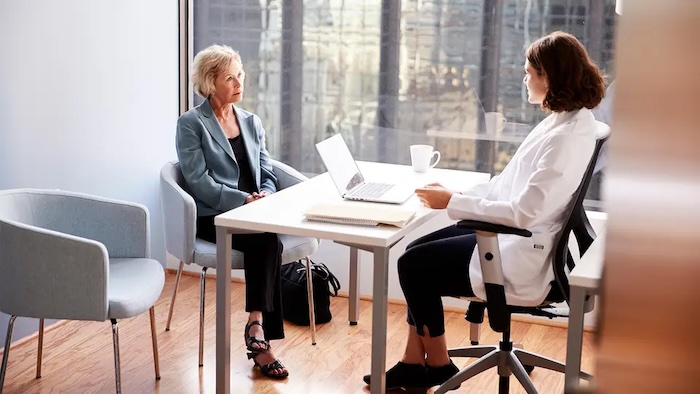— Patients can make their preferences known away from the pressures of acute illness

There are the things that matter, and then there are the things that really matter.
As I’ve often written, through the course of a primary care office visit, and over the course of a long-term relationship between a patient and their primary care doctor, there are so many things we need to attend to.
So many acute issues, so many chronic medical problems, so many unmet health needs, so many social determinants of health that our patients struggle with, the massive issues of mental health, and the healthcare inequities and disparities that exist across the spectrum of our society.
I’ve written before about how much time it would take to take care of everything — to go through all the patient’s issues, all the vaccines and other healthcare maintenance items, all the screenings mandated by insurance companies, and all the questionnaires that bombard our patients (and us) from before their visit even starts through the time they leave the practice.
But of course, there are often things that get left unsaid, unattended to, or put off for another day.
Apart from the moment a decision is finally required, we oftentimes put off end-of-life discussions and other issues surrounding these complicated topics.
Things like signing a healthcare proxyopens in a new tab or window, having a discussion with their family about what they would want done at their end-of-lifeopens in a new tab or window, whether they want to donateopens in a new tab or window their organs, whether they want an autopsy when they pass.
Each of these topics could take a day, a week, a month, a year, a lifetime.
Patients’ ideas about each of these things change over time, change with their circumstances, change in the moment.
What we think we want when we’re young and healthy and seemingly immortal sometimes changes in the heat of a critical moment, a catastrophic illness, a tipping point, a time to decide.
How many times have each of us had a patient who got to this point and both doctors and the patient’s family wished we’d had more time to talk to them to understand what their loved one really wanted.
As part of my initial visit with patients, I tell them I’m there to be an advocate for their health, to help them navigate through our incredibly challenging healthcare system, and to try and be there for them as much as I can.
Our practice used to hand out paper copies of the New York State healthcare proxy and living wills forms.
But somewhere along the line — perhaps due to the cost of printing all those paper forms — the hospital decided we wouldn’t be doing that anymore.
Now when I meet a new patient, I send them a link to those forms in the electronic after-visit summary once we’ve wrapped up for the day, and they can print them out at home. I am hopeful the forms will help them make these decisions in a calm manner, away from the pressures of an acute illness, talking it all over with those that matter most in their lives.
Whenever time allows, I tell my patients — from the youngest to the oldest, the incredibly healthy to the terribly sick — that I have these conversations with everybody, that everyone should make their family and other loved ones know what they would want done in these difficult situations.
I know there is a lot of debate about how much this can change, how the decision to do nothing and pass peacefully can be interrupted by a critical illness when maybe, just maybe, if we only do just a little more, just a few more days, then things might turn around.
But for all of us this is a good place to start: to find out what a patient’s wishes are, to help make things easier for them, for the team of healthcare providers taking care of them, and for everyone who’s close to them who will ultimately be so deeply affected by what happens next.
Perhaps someday we’ll be a mature enough society where, instead of having to convince someone to be an organ donor, the default would be to donate any of our viable organs for the benefit of others (like it is for much of the rest of the world).
Perhaps someday we can use the idea of an autopsy to help advance medical knowledge, to help understand the process of living and dying, to help the next person in line who might benefit from what we learn.
And maybe even someday the issues of a dignified death, of maximizing the use of hospice and palliative care, of helping our loved ones get the peace they desire, will no longer raise such societal ire and create so much resistance.
I know this is a lot, I know that each of these topics comes with an enormous amount of charged societal and emotional baggage, and there are strong opinions on all sides.
For now, I’ll keep telling my patients to think about it, to think about how they’d feel, how they want their family to feel, how much better it will be if everyone is on the same page.
Far too often we’ve seen families torn apart by these decisions during the last days of a patient’s life. And none of us want to see that happen.
Complete Article ↪HERE↩!
